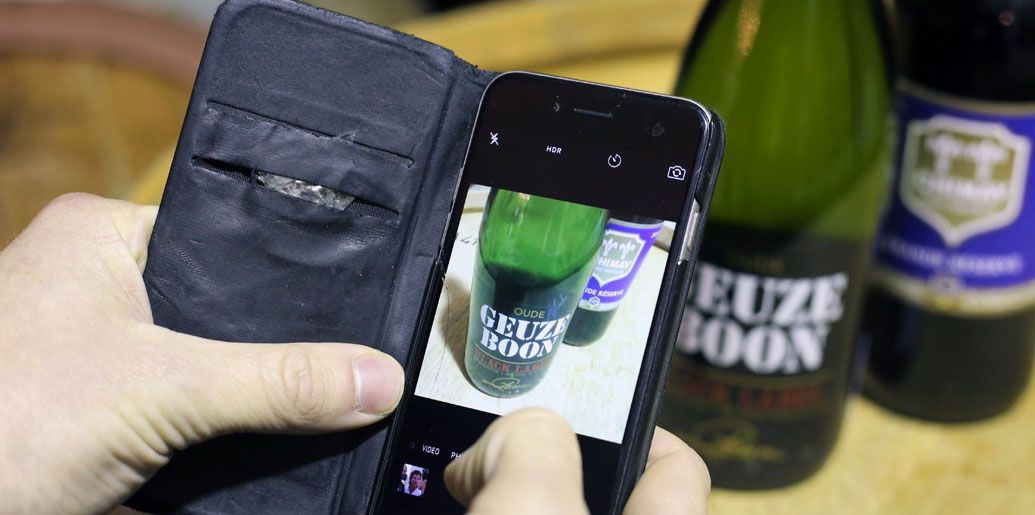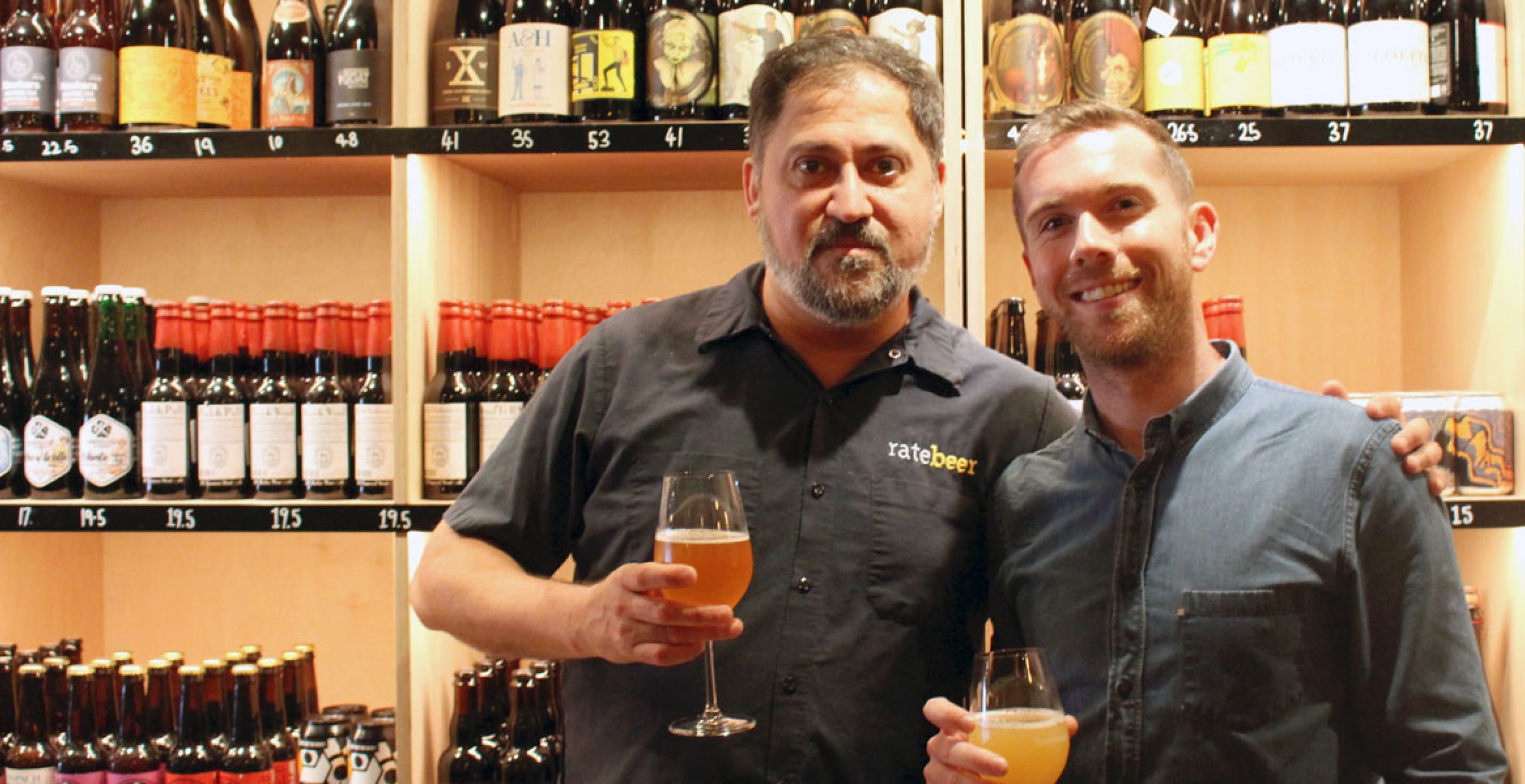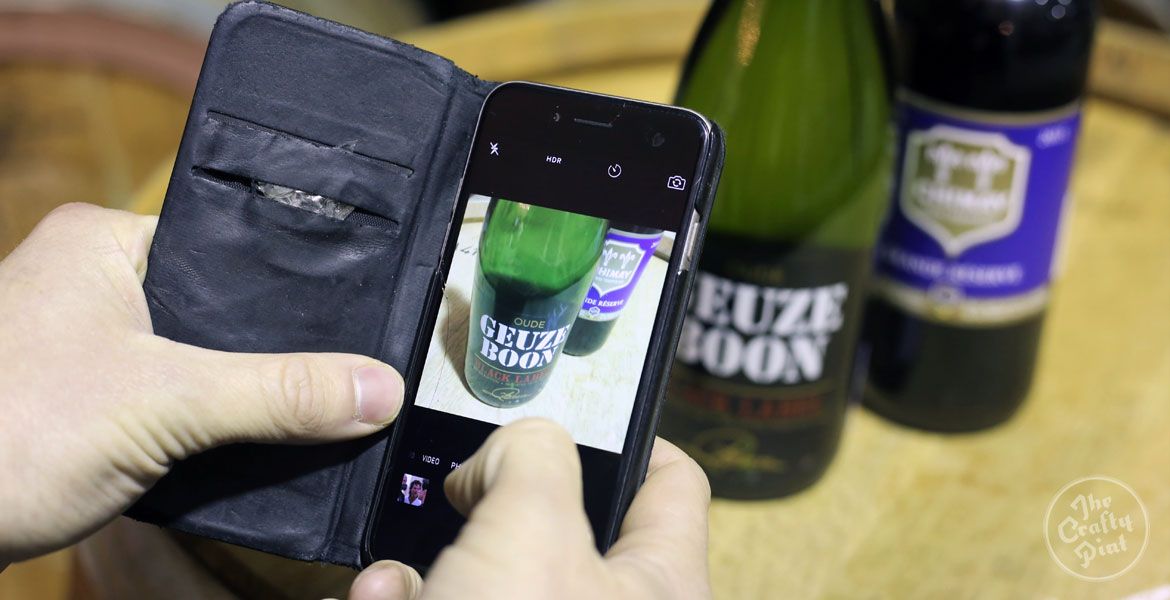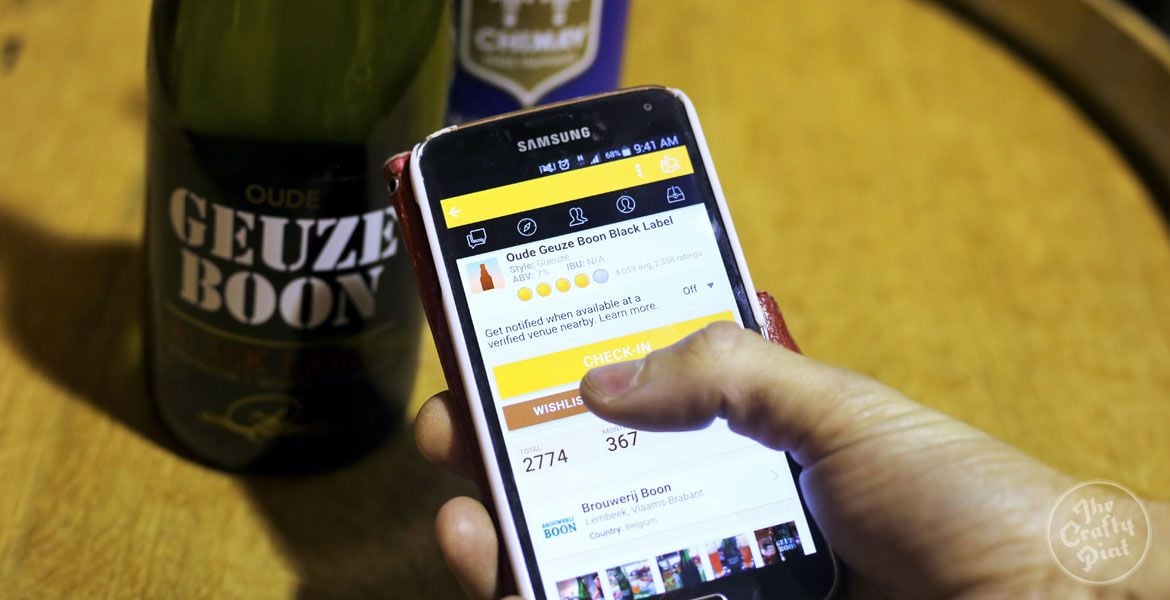One of the world’s better known – and oldest – beer rating services, RateBeer, is expanding its operations in Australia, with the intention being to use the country, as well as New Zealand, as a testing ground for the next stage in its evolution. The expansion has seen RateBeer establish its own local office and staff as it introduces new features to the website and associated app and follows its partial sale to the world's largest beer company, AB InBev in late 2016, via investment arm ZX Ventures.
One of RateBeer's long-term owners Joe Tucker (above left), in Australia for a series of (re)launch events, says the growth of breweries here and the interest many drinkers have in imported craft beer made Australia a logical place for a RateBeer outpost.
“Australia is at a really nice point in its growth," Joe says, "that we’re seeing an opportunity to bring new enthusiasts onboard [and] new energy to RateBeer."
Douglas Mitchell (above right), who will run RateBeer’s Australian operation, suggests Australia’s small population and “digitally savvy” consumers make the country the right place to test new features.
“Because Australia is an emerging craft market, it gives us the ability to test some concepts in that market before rolling them out to other markets like the US and UK where we have a much larger user base,” he says.
Part of RateBeer’s development includes the integration of a retail component to the site and app, which enables users to access retailers directly to buy certain beers.
“This is something people have asked for from RateBeer’s very beginning,” Joe says. “The community very naturally tells people what’s good and interesting and, once you find what you should be looking for, it’s always been very difficult to get it.”
The local focus on RateBeer in Australia and New Zealand represents another step outside the core business of brewing for AB InBev, the parent company of CUB following its merger with SABMiller in 2016. Earlier this year, it acquired online retailer BoozeBud via ZX Ventures – AB InBev’s first move into the local retail market – and, while RateBeer users may in future have the option to buy from BoozeBud via the app, they are working with other retailers too.
“RateBeer is still very much separate from the day to day operations,” Douglas says. “It’s very important to us that we remain independent; we do have a separate team and separate vision and are about supporting all retailers equally.
“Whether it’s BoozeBud or it’s Beer Cartel, we would treat both of those retailers in the exact same way; we don’t want to ever be seen to be giving preference to a brewer, brand or retailer. It’s just not part of our identity.”
When RateBeer revealed AB InBev had taken a minority share in the business in June last year, the announcement was met with backlash from some brewery owners concerned about the effect that investment could have on the site's independence (as covered in our look at the state of play for craft beer in July 2017). Sam Calagione from Dogfish Head asked for the brewery’s beers to be removed from the site and said at the time it didn’t seem right for a brewery to be in a position to potentially manipulate what consumers are hearing and saying about beers.
Joe says he understands those concerns, particularly given the announcement came just a month after the brewing giant bought Wicked Weed, a brewery much loved by beer geeks.
“I think people were very sensitive about acquisitions at the time,” Joe says, adding: “We’ve had no battles over integration of certain retailers and nobody has ever asked me to reassess brewers’ scores.”
Both the online and beer worlds have changed dramatically since the site first launched in 2000. Many other beer apps and news sites have come and gone in that time and, in Australia, it’s Untappd that has become the most common means by which drinkers review and track beers.
And, despite some shared features – not least the central one where drinkers rate and review beers – Joe and Douglas insist RateBeer and Untappd have different roles to play. Joe says the more detailed review system built into RateBeer and the fact reviewers need to write reviews of at least 75 words for them to become “Public” means RateBeer is a more sophisticated system.
“Because of the complexity of the user reviews, both industry and beer shoppers look to RateBeer with a degree of authority; they trust RateBeer scores,” he says.

The role beer rating sites and apps play within the beer world is one that's regularly debated, with some brewery owners among those bemoaning the ability of such services to promote scarcity and hype over quality or to favour bigger and more extreme beers. It’s an issue Kerry McBride unpacked for The Crafty Pint back in 2016.
As someone who’s run RateBeer since its early days, Joe says he understands how hype and scarcity can drive a beer’s popularity but argues you can’t always separate the experience around a beer from beer itself.
“I don’t see how scarcity is any different from other things people put into their beer,” he says, before pointing to the beer in his hand at Collingwood’s Beermash.
“This beer tastes a certain way just based on where we are sitting, the time of the day and how you are as a person right now in a setting. I think people manage that setting in a pretty complex way, whether it’s by having a great beer bar or having good packaging or art and presentation.
“Even something like limiting quantity and having special releases, I think that’s part of this new beer experience that we all enjoy.”
And, while that might sound unusual coming from a man responsible for a beer review site, he says it's an important way to understand user reviews.
“It’s something that that puts a big asterisk on whatever we do," he says, "but I think having that honesty improves the trustworthiness of what we do.”
Update: in February 2019, Joe Tucker announced AB InBev had fully acquired RateBeer via ZX Ventures. You can read Joe's announcement here.















